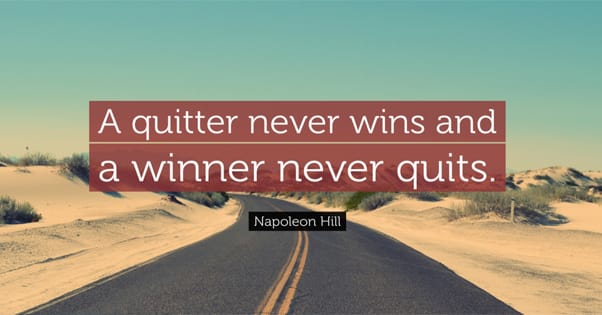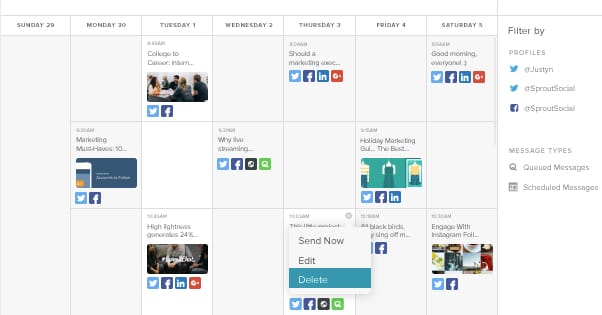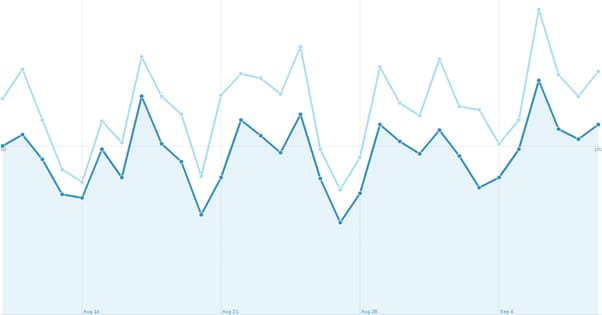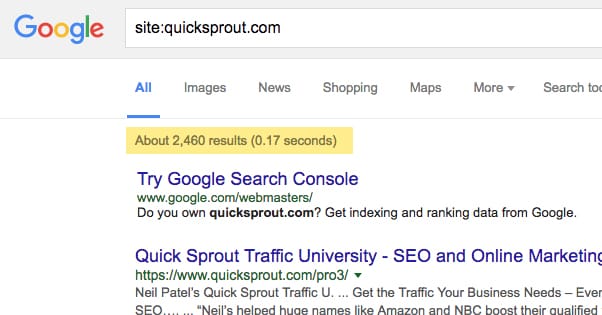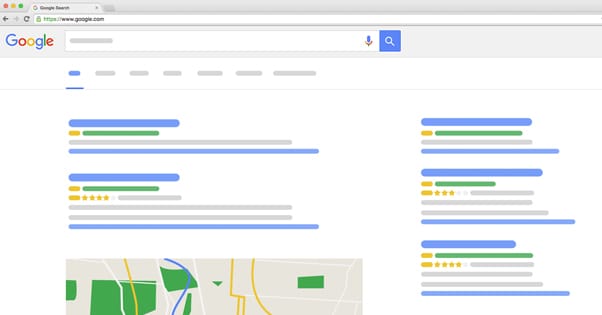Why It Can Take Years to See Results from Blogging
Published by James Parsons • Content Marketing • Posted October 16, 2016 ContentPowered.com
ContentPowered.com
It might seem odd coming from a site about helping people blog, but one thing I’m going to talk about today is just how difficult it is to be a blogger these days. The Internet is old, as far as technology goes. Sure, there are seven billion people in the world, and most of them use the internet, but there are over a billion websites online today. Sure, a lot of them are parked domains or otherwise inactive sites, but you know what those are?
Tombstones.
Nearly every parked domain is a domain someone bought and let expire. Every inactive blog is the marker of a blogger who thought they could cut it and couldn’t. The internet is absolutely packed with failure, and I’m not talking about the latest from FailArmy.
Blogging is Hard
There’s no graceful way to say it. Blogging is not an easy task. There’s a reason there’s a thriving industry of ghostwriters and freelance writers in the world. There’s a reason people turn to article spinners rather than write their own content. Running a blog and blogging business is hard even without having to write all of your content yourself.
Estimates around the web indicate that the absolute shortest amount of time between creating a blog and becoming what might be termed “successful” is about six months. Realistically, the vast majority of blogs will languish well past the one year mark, and most will never actually grow to be successful.
Even by reading this, you’re putting yourself ahead of the game, above average. Most bloggers go into things with “I should blog about sports” on their mind, they start a simple blogger or WordPress account, and they spew their thoughts on digital paper. Most of them are barely coherent as far as thoughts are concerned, and most of these people have no idea how to write for the web. They never stop to consider their audience, because they don’t care about an audience. They only care about putting their thoughts out there, under the assumption that the internet is magic. Someone will find them, they say, and their thoughts are excellent reads.
The reality is that virtually no one cares. Blogs have to have something special to them in order to be successful. Think about it; how many blogs do you actually read in your day to day life? I could count mine on one hand. 99% of the time, when I’m reading a blog, it’s because I did a Google search for a specific topic and happened to find a blog post. Big names like Hubspot or Search Engine Land or WordStream come up more often than others, but it’s a crapshoot whether they show up for any given query, particularly for some of the more tertiary topics I search for.
Being a blogger is a lot of work, and most people who want to blog – and who start blogs – don’t go into it with the right mindset. They feel like so long as they can produce content, they can be successful, but that’s not true at all. You can write a blog post every day and still end up with under 100 readers per month by the end of five years. There’s so much nuance that novice bloggers don’t consider.
Most Bloggers Don’t Start with a Firm Purpose in Mind
Like I said; most bloggers start with nothing more than the thought that their ideas are good and that other people should want to read them. They don’t stop to consider why they’re blogging, who their audience is, or what they’re trying to accomplish. Successful bloggers start with a purpose and aim all of their actions towards achieving that purpose.
A lot of this comes down to establishing the right kind of mindset and foundation. Bloggers need to have realistic expectations going in, but it’s hard to make those expectations realistic with 20 years worth of posts talking about how easy it is to get started blogging.
The lack of realistic expectations is a huge contributor to the failure of most blogs. People go into it expecting to spend a month or two at it before they’re at least beginning to see returns. They want to have visitors, readers, comments, social shares, and maybe even referrals to businesses or a check from AdSense quickly. They don’t stop to realize that these things take a long time to build up to. The internet may be full of people, but putting up a blog is not like putting up a sign on a road; no one has any obligation to find you or read your content.
New Domains Don’t Have Much SEO Weight
Another factor contributing to how long it takes to find success as a blogger is the way Google works. One factor out of many that determines the search ranking of a site is the age of the domain. New domains don’t have much clout. They haven’t earned the value older domains have, even if those older domains have spent a lot of their time idle or parked. Old domains are domains with reverence, with potential experience behind them. It’s only when the site that exists on that domain pulls a black hat trick and loses their goodwill that the age of the domain ceases to matter.
It Can Take a While to Find Your Footing with Content
Content is a tricky beast. On the one hand, you need a significant amount of content if you want to achieve any notable rank in Google. The more content you have, on a wide variety of subjects within your niche, the more chances you have to rank for a variety of queries. On the other hand, new bloggers tend to fall into the content trap.
The content trap is a side-effect of the Post-Panda world. Content is everything, according to SEO and marketing blogs, and it’s true to an extent. Compared to the techniques from before, where meta data mattered more, content is truly everything now. However, it’s not about producing more content in an ever-expanding flood of words. It’s more about producing enough content to reach a baseline level of value, and then promoting that content.
Posting article after article is only good if you can then do something with those articles. If no one can find them, no one can read them. If no one is reading them, no one can share or engage with them. Your audience can’t grow. You need to put as much effort or more into promoting your content as you do creating it.
It Takes a While for Users to Develop a Habit of Returning
How many times do you need to see a website before you recognize it? You might come back to it two or three times before you realize it’s a site you’ve been to before. That might be when you note a name, but you might not consciously recognize the brand behind the name. It might take a few more visits before you start associating that name and site with certain topics. It’s only after successive visits that you start really recognizing these sites as authorities, and that’s the point a site can be considered successful.
Part of it is all about the psychological hook, the trigger and reward cycle. It’s about making visiting your site a habit. Yet very few of the average blog’s readers are going to be returning, dedicated readers. As I mentioned, myself and many other people only visit most sites due to information-seeking searches.
This is why sites like Knowable or Upworthy gained popularity as quickly as they did. They produce very little content of their own, choosing instead to aggregate value from smaller sources. They create the habit of seeing a clickbait title and then visiting for the resolution. Not many people browse these sites directly; they get all of their visits from promotion, usually via social media. Again; it’s not the content, it’s the promotion.
It Takes a Decent Amount of Content to Start to Rank
A lot of factors go into the calculation that determines where a site will rank. Just as an experiment, do any Google search at all. It doesn’t matter what. You’ll see a number up at the top, something like “7,020,000 results” or “23,400,000 results” or some other hilariously large number. That’s millions upon millions of results for your given search. Out of all of those millions of results, only 10 of them are on the front page of Google, and only one of them takes the coveted top spot.
The rest? Well, some of them may be better pages that what ranks at the top, but the content is on a site with less link juice and less SEO weight, younger domains, less content, and all the other factors making it harder to rank. A lot of the rest of the results are going to be poor quality content, duplicate content, stolen content, spam content, and unrelated content that happens to share keywords. There’s a reason no one goes to page 2, or 3, or 4, or 5+ of Google.
At the very least, it can take a few days for a brand new piece of content to even be indexed in Google’s databases. It takes longer than that for Google to calculate metrics and decide where that piece of content should rank. To do this for a whole site takes even longer, and to grow from there takes dedicated effort.
It Will Take Several Iterations of Paid Ads to Discover Your Audience
I’ve mentioned that finding an audience is difficult, and it’s true that people won’t just stumble onto you. You need to go out of your way to promote your site, by any means possible. Social media is one method, sure, and getting links from existing sites helps. So do word of mouth, business cards, email signatures, and a thousand other minor means of promotion.
Paid ads are some of the easiest ways to get exposure, but they obviously cost money, which novice bloggers may not be willing to spend. Plus, it’s virtually guaranteed that you’re going to waste money targeting people you don’t need to before you hit upon the right audiences. There’s entire industries and blogs dedicated to using paid ads properly; what new blogger is going to be a natural?
There is Probably Already Stiff Competition for Your Niche
As I mentioned, the internet is old as far as technology goes. Think about it like this. A new blogger is like a new writer, writing a book of their own. Starting a new blog is like writing that book, printing out a copy, then going to the library of congress and finding a shelf to tuck it into. Who is going to find that poor little book? Out of the whole of the world, very few people go to that library. Out of all the library visitors, few go to that section. Of the section visitors, how many are realistically even going to notice that one new book? It would have to be a pretty stand-out book.
Competition is strong, and much of it might be totally passive. Large sites that wrote content five years ago could be out-competing your brand new content simply because they have so much power and so much history that it’s difficult to move them.
It’s Very Easy to Neglect a Site When Returns Aren’t Immediate
Most bloggers, again, simply have unrealistic expectations of their potential success with blogging. Unfortunately, it’s we fellow bloggers instilling that in them. We don’t want to scare away potential peers, but neither do we want to be fully realistic or overly helpful for fear of losing out to them. Every blogger has their methods and secrets, after all.
When a site fails to succeed right away, many bloggers are discouraged and give up. Others turn to black hat techniques to speed up, and are crushed by Google when they fail. The lack of returns spurs a lack of motivation, and that leads to a neglected site, which leads to a dead site. It’s an endless, vicious cycle. Sorry I had to break it to you.
